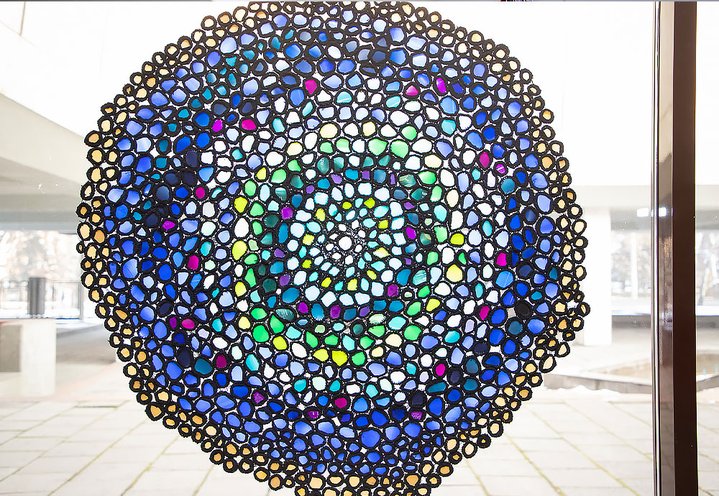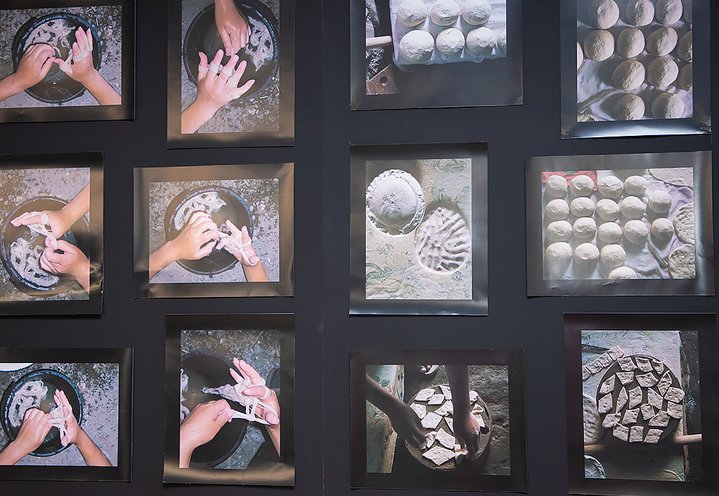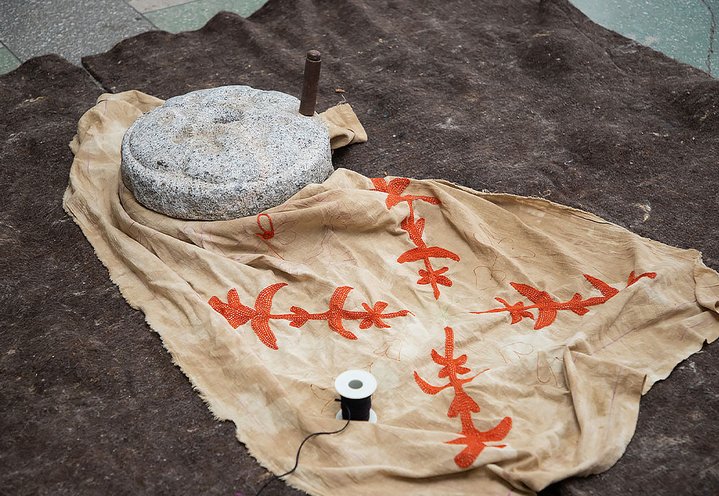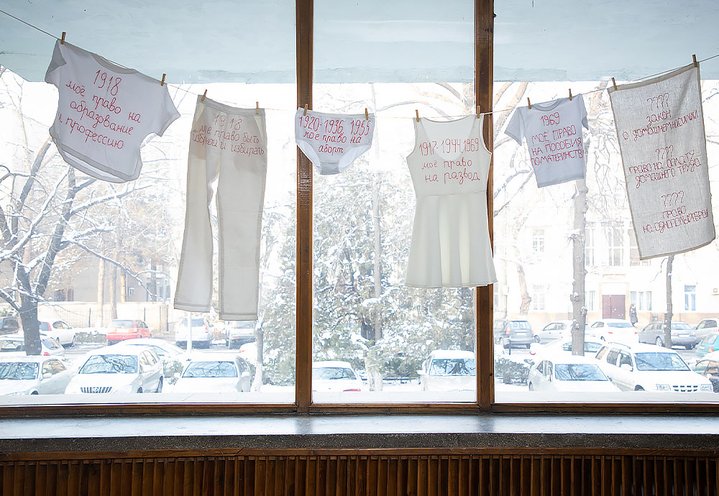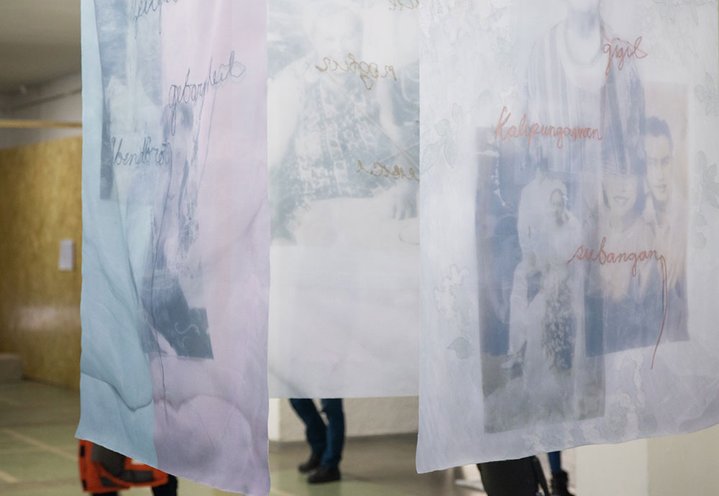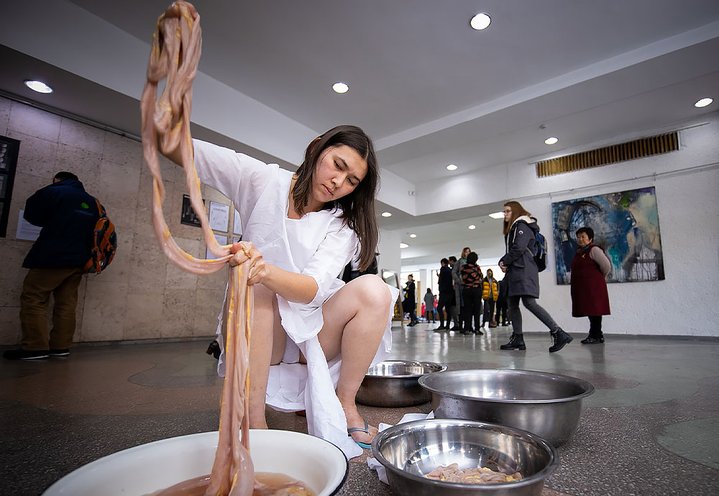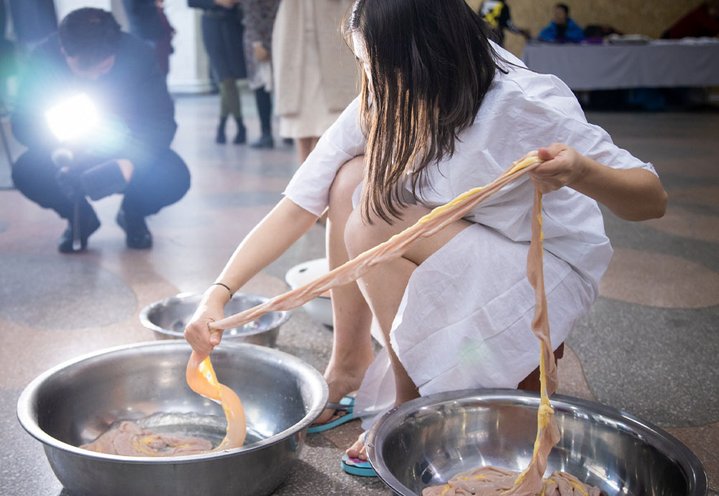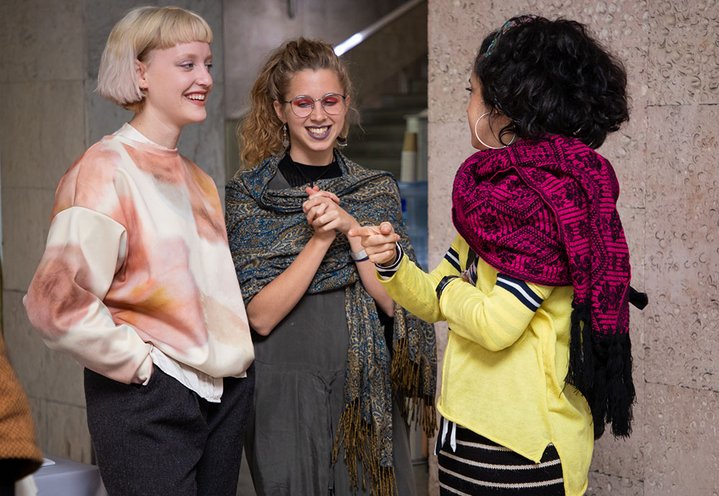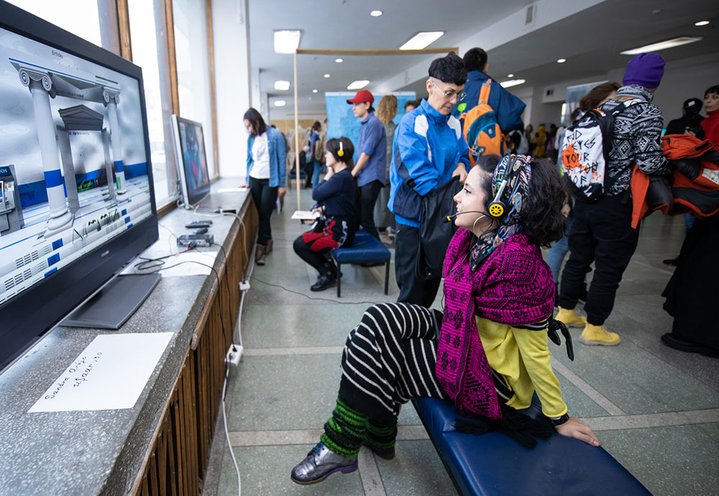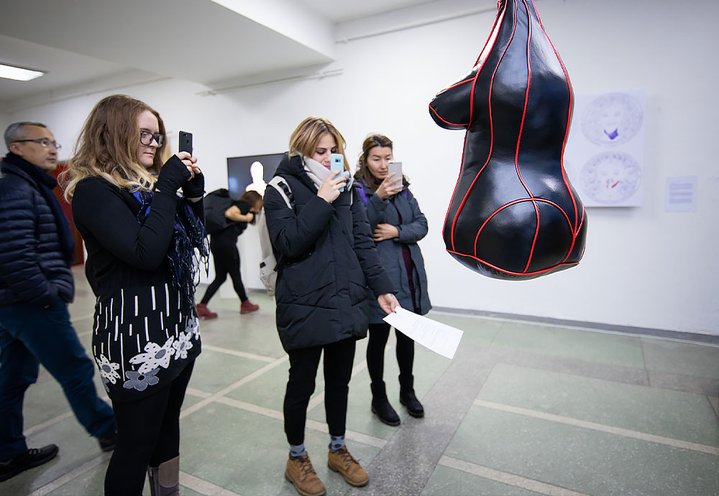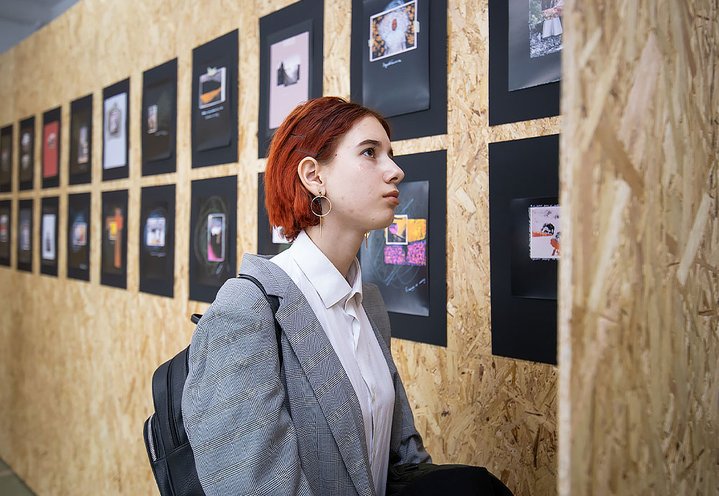Kyrgyzstan's scandal-struck first Femminale
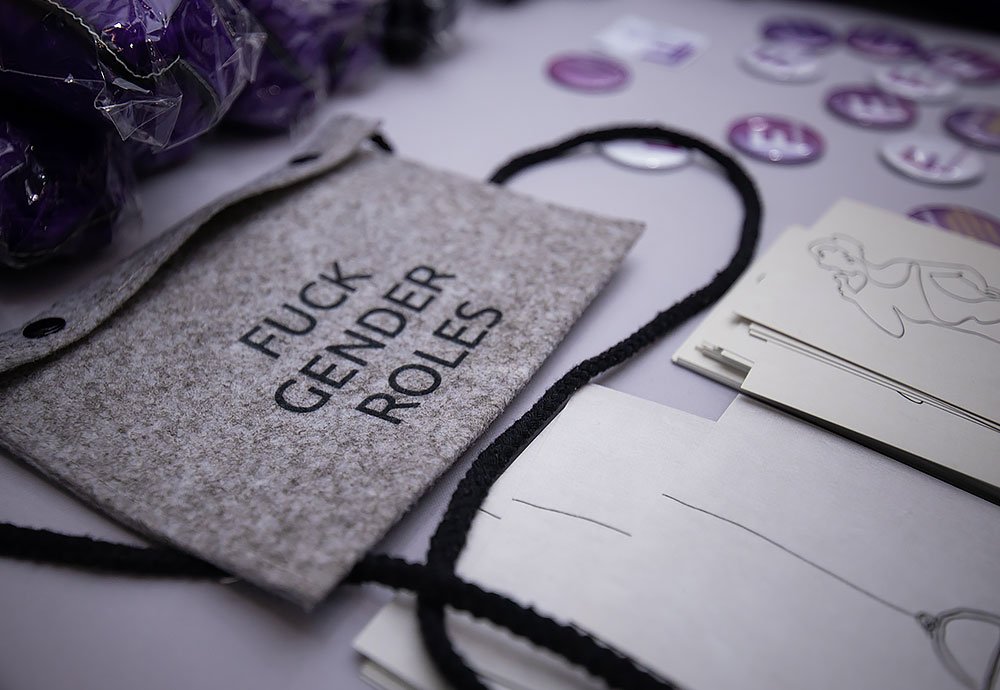
The Kyrgyz government censored the exhibition after protests by traditionalists. Bermet Borubaeva, herself a participant of the show, reports on the scandal.
No symbol could send a stronger message about the condition of women in the Central Asia than the black leather punch bag in the form of a female torso exhibited at Kyrgyzstan’s scandal-struck 1st Feminnale, the female equivalent of an international biennale. Its name is ‘Evermust Object’. The work’s author, Kazakh artist Zoya Falkova, describes it as “a symbol of a social climate in which violence is considered the norm and even a sign of love”.
It signals that a woman’s body is an object of violence. It was one of the works that was later removed from the show by Azamat Dzhamankulov, Kyrgyzstan’s Minister of Culture. The three-week show at the National Museum of Fine Art in Kyrgyzstan’s capital Bishkek aroused the fury of a group that acts as a self-appointed morality police and led to the forced resignation of the museum’s 67-year-old director Mira Dzhangaracheva, a former prominent politician. Both she and one of the exhibition’s curators, Altyn Kapalovan, received numerous threats on social media.
The morality activists go under the name of ‘Kyrk Choro’ and define themselves as “Traditionalists”, but are best known for queer-bashing and highly publicised inspections of the capital’s brothels. For that group, tradition is above the law. Their goals include banning divorce and abortion. What started the row were exaggerated press reports that there were naked women on display in that “temple of art”, the national museum. There was, in fact, just a single ‘Reverse striptease’ performed by Danish dancer and artist Julie Savery, who wrote on her website that it was aimed at raising awareness about women’s rights over their own bodies. She had the vulnerable position of sex workers and the sexual exploitation of women particularly at heart.
“The performance is as much about getting dressed as it is about being naked. It emphasizes the right women ought to have, not only over when to take off our clothes, but also when and how to cover our bodies. My performance has been described as provocative. Feminism is a controversial topic all around the globe and I was thus expecting a debate to be spurred by Feminnale as a whole,” Savery wrote, expressing regret that so much attention had been focused on a single part of the event.
The 32-year-old Kyrgyz culture minister then intervened in the exhibition under the pressure of protests by “national patriotic forces” who strongly objected to the show. He first forced the museum’s director to resign and then ordered the removal of six art works he judged would be “provocative” for 80 percent of the population. Most of the art works banned by the minister focused on domestic violence (one of the Feminnale’s key themes), but they also included “Happy Holidays. All Rights”, an embroidery on trunks by Russian artist Anastassia Makarenko listing the dates at which women obtained key rights such as education, the vote and the right to abortions. Faced with a choice of either closing the Femminale immediately or letting it continue until its agreed closing date on December 15, a majority of the participating artists voted in favour of removing the controversial art works. According to press reports, the banned objects were not damaged and were removed via an ambulance.
The Bishkek show is dedicated to the memory of 17 female immigrants who died in a Moscow warehouse fire in 2016. All but three of the victims were from Kyrgyzstan. It is for that reason that the exhibition is lasting 17 days. The Bishkek show’s name is ‘Breadwinners and female economic liberation’, an acknowledgement of the huge role Central Asia women have played in feeding households since the collapse of the Soviet Union.
A total of 40 participants of the Bishkek Feminnale, the great majority of them artists, sent an open letter to Kyrgyzstan’s President Sooronbay Jeenbekov complaining that the local police had taken no action against threats by radical elements and demanding the end of any art censorship, the reinstatement of the former director of the National Museum of Fine Art and the dismissal of Culture Minister Azamat Dzhamankulov.






